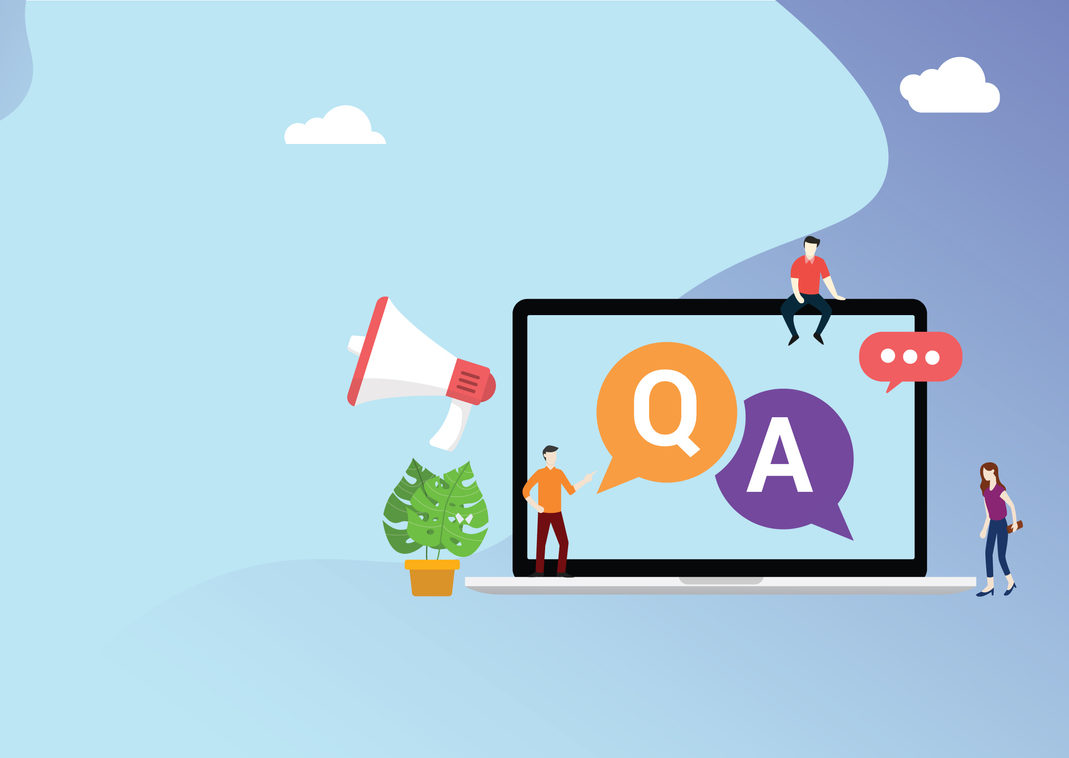Does My Site Need an FAQ Page?

FAQ pages have undergone a tumultuous history over the past two decades. An FAQ page was initially one of the common ways to organize information on the web. But a user testing movement about a decade ago began to lay out the reasons why they’re actually bad for user experience. Today, they’re back in full force, recommended by experts everywhere from Search Engine Journal to Google itself.
Of course, this raises a core question: does your business need an FAQ page? Let’s dive into the nuances of business website FAQ pages. We’ll also look at how to build one that leverages the medium’s full potential.
The Core Purpose of an FAQ Page
At its core, an FAQ page is simple. It’s a resource page that addresses commonly asked questions and concerns from your users before they have to turn to you for answers.
In other words, an FAQ page is not about your business or brand. It’s about your customers’ needs to find quick answers. The page seeks to provide those answers in the fastest and most straightforward way possible.
FAQ pages can answer questions about product details, shipping, taxes, potential returns, loyalty programs, and much more. As its name (FAQs = Frequently Asked Questions) suggests, its purpose is quite literally making sure that your audience can get answers to their most common concerns quickly and efficiently.
5 Key Business Benefits of FAQ Pages
Well-built FAQ pages come with several advantages from which businesses across industries can benefit. These five benefits of FAQ pages are particularly relevant for effective website design:
1. Simplifying Customer Service
Research shows that 69% of consumers try to answer questions on their own before reaching out to customer service. That likely starts with a search on a search engine or your website. Your FAQ page ensures that answers to these questions are easily available to find. This simplifies customer service for both customers and businesses.
2. Reducing Customer Frustration
We know from experience that when a customer reaches out to support, they’re likely frustrated enough that a negative review becomes more likely. An early catch through the FAQ page can reduce that frustration and minimizes the chances of negative brand exposure.
3. Easing Shipping Confusion
Questions about shipping are among the most common concerns customers tend to share. Your FAQ page can answer anything from typical shipping times to extra fees and tracking information. It can also provide specific deadlines by which an order needs to be made to arrive in time for a given day, especially as we get closer to the holidays.
4. Answering Product Questions
Your FAQ page allows you to highlight key information about your product. That ranges from basic tutorials to troubleshooting—and even unique ways to use the product. Check out how one of our clients, Magical Butter, uses its FAQ page not just to explain the core products but also to potentially expand uses for them.
5. Improving Website SEO
Well-designed FAQs can play a significant role in your search engine optimization efforts. As outlined by Google, answers can be marked up specifically to appear in featured snippets. Individual questions and answers should align with the most common keywords and phrases customers use when searching for your products.

What Industries Can Benefit From Prominently Published FAQs?
Even with all these potential benefits, an FAQ page isn’t automatically a must-have for every industry. Instead, a few industries can particularly benefit from this type of page on their website:
- E-commerce businesses: These businesses commonly encounter questions about shipping and product details in an environment where a physical test of the product is not possible.
- Businesses with niche or unique products: They need more explaining in terms of potential uses and product benefits. That also applies to niche products in major industries, like our client Maud’s Coffee & Tea.
- Companies with long sales cycles, like business-facing brands for which any purchase comes with significant research and consideration. The FAQ page becomes a core research source in these cases.
Of course, these are not the only examples of industries in which the right FAQ page can thrive. In fact, even some of the world’s most popular brands, from Instagram to Starbucks, have built FAQ pages to answer some of their most common questions.
5 Steps to Set Up an Effective Business Website FAQ Page
Finally, it’s not enough to just have any FAQ page. The page needs to be good enough to actually fulfill its goals for your audience. These five basic steps can help you.
- Research common customer questions. Search terms related to your brand and product category, customer service logs, and high-traffic pages on your website can help uncover exactly what questions your customers most commonly seek the answer for.
- Write clear answers to selected questions. All answers on your FAQ page should be written in clear, simple language, answering the question as quickly as possible. This is not the time for fluff, technical terms, or jargon that could further confuse your customers.
- Create relevant categories for extensive pages. If your FAQ page answers more than just a handful of questions, organization is key. Create categories like Shipping, Product, and more to help users navigate easily.
- Use an intuitive and attractive FAQ layout. Some design options for this type of page include dropdowns of answers once you click on a question, images specific to categories or questions, and more. But keep in mind that function comes first; no layout choice should get in the way of quick answers.
- Include a suggestion box on your page. In this box, you can ask visitors to list other questions they might want answers to, rate the usefulness of the questions you do answer, and more. Direct audience feedback can help you improve your FAQ page over time.
Finally, keep in mind that you’re not alone. With a reliable web development partner, you can develop a great page full of FAQs that are relevant to your audience and ease their concerns. We’ve helped many of our clients with their FAQ pages and are ready to do the same for you. Contact us to start the conversation.

 Ryan Kodzik
Ryan Kodzik 
